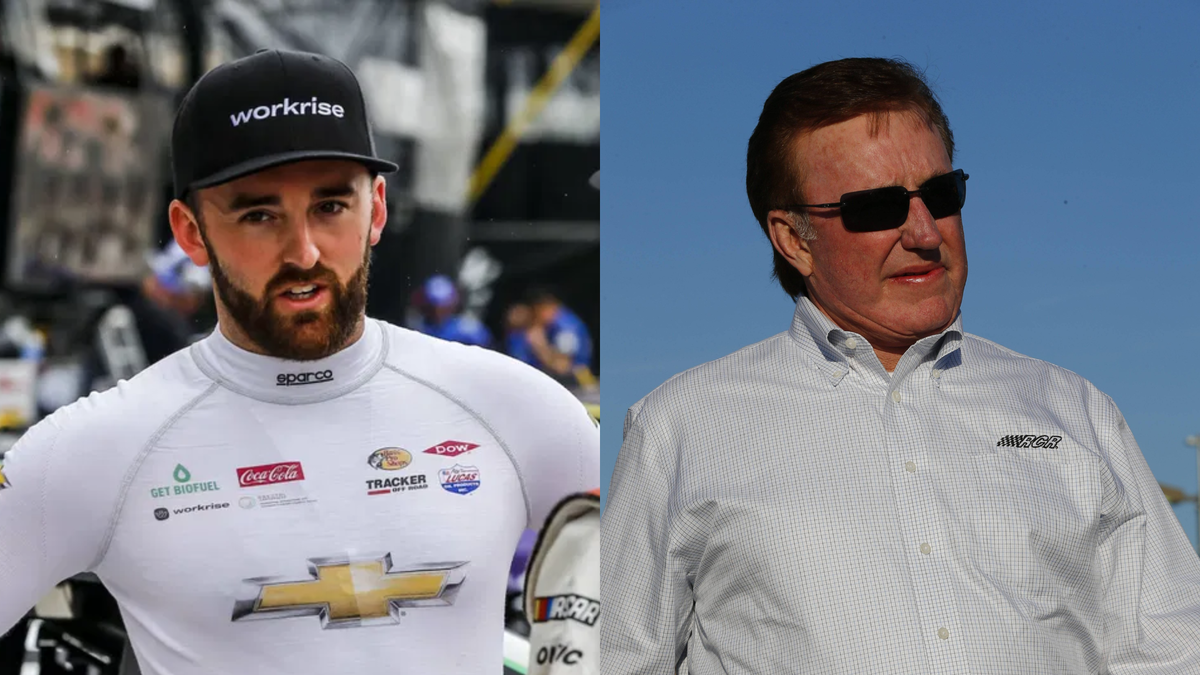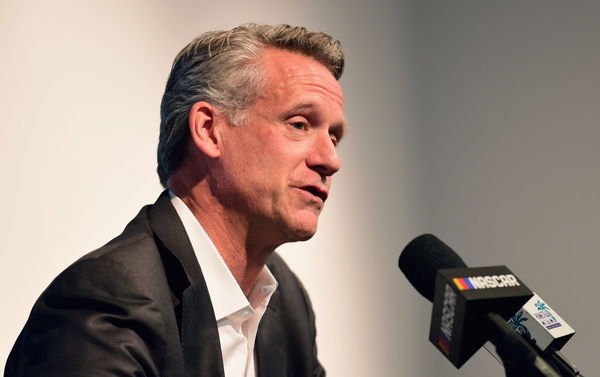
Imago
Austin Dillon and Richard Childress | Image Credits: Imago

Imago
Austin Dillon and Richard Childress | Image Credits: Imago
At the Michigan International Speedway, there was almost a silver lining for RCR after their tough season. But the silver lining quickly turned into stormy grey clouds as Austin Dillon won the FireKeepers Casino 400 but was denied a position in the playoffs because of the wrecks that occurred during the race. The last turn during the last lap was where most of the action took place, as Dillon decided to wreck both Joey Logano and Denny Hamlin to win the race.
Watch What’s Trending Now!
The NASCAR officials took their time to penalize Austin Dillon, but ultimately, the verdict went out. RCR is having a tough season, and with this win, they would have their first driver in the playoffs. However, the verdict stripped the opportunity down, and rightfully so, according to many NASCAR pundits. In the end, driver safety is one of the most important factors and Dillon’s actions compromised that. Many podcasts and talk shows have discussed NASCAR’s decision; however, Kevin Harvick found the best possible man to answer this question: the NASCAR president.
The latest episode of Kevin Harvick’s Happy Hour had Steve Phelps as the guest, and together they jumped into the eventful last week and had discussions on Austin Dillon’s performance. Harvick saw the opportunity and asked Phelps about the penalty issued to Dillon, saying, “Obviously, you guys made a decision with the end of that race, and we saw the penalties and everything. What was that decision like internally, and how tough was it?”
Steve Phelps was direct as he revealed, “We don’t want to penalize drivers. We don’t want to have cars that do not pass tech.” Explaining the reason why NASCAR needs to penalize the drivers, he said, “There is a responsibility if you are going to be fair about the rules you put in place and then officiate.” The discussion carried on to try to figure out what type of driving is acceptable and what causes fines when Phelps explained, “If you hook someone going 170 miles per hour on a mile-and-a-half track, you have crossed the line.”

Getty
HOMESTEAD, FL—NOVEMBER 18: NASCAR President Steve Phelps speaks to the media prior to the Monster Energy NASCAR Cup Series Ford EcoBoost 400 at Homestead-Miami Speedway on November 18, 2018 in Homestead, Florida. (Photo by Jared C. Tilton/Getty Images) )
“It’s hard to hide from the data,” the president explained before saying that at Michigan, “there was a line that was crossed, in our [NASCAR’s] opinion.” When the officials made their decision, even Phelps had a say in it after looking at the data, as he explained that the team believed that their call was correct. Despite being the president of NASCAR, Phelps explained, “If we don’t believe that they’ve got it significantly wrong, we will not overturn their decision.“ Ultimately, he stated that it was the decision of the officials, and despite being the president, he would not try to overrule their call.
Although the news came days after the race was concluded, Harvick wanted to know about the possibility of such penalties being determined as the race finished.
NASCAR plans on getting quicker with difficult decisions following the Austin Dillon incident
After hearing what Phelps had to say about not changing NASCAR’s decision to deny Dillon a playoff spot, Kevin Harvick asked the president if such penalties would be issued right after the race. Phelps had an answer for that, as NASCAR held an all-driver meet, and this was discussed at length for that duration.

USA Today via Reuters
Feb 14, 2024; Daytona Beach, Florida, USA; NASCAR Cup Series driver Austin Dillon (3) speaks with reporters during media day at Daytona International Speedway. Mandatory Credit: John David Mercer-USA TODAY Sports
Saying that this is “something we can do in the future,” Phelps gives fans and teams hope for quicker justice when it comes to unpredictable wrecks during the last lap. Stating that the team does not like making changes to the rules during a season without strong reasons, he assures Harvick that the organization will explore this possibility.
Do you think that NASCAR should have been quicker with denouncing Dillon from the playoffs? Share your thoughts in the comments below.


